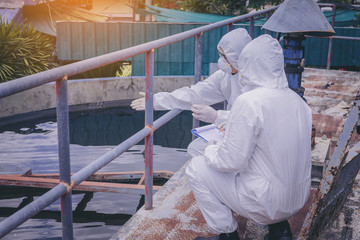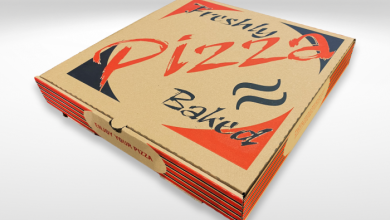Effective Procedures for the Disposal of Clinical Waste

Clinical waste is waste that is often created in a health care setting or other settings, and it may lead to an infection and put a person’s life in danger if the waste is not properly processed or stored. Other contexts may also produce clinical waste.
It is the responsibility of health care facilities to guarantee the safe and efficient management of their clinical and hazardous waste, not only for the benefit of their patients but also for the assistance of your neighbourhood as a whole.
We at Trikon Clinical Waste have a team of professionals that are trained in the management of clinical waste, and during this conversation, we will go through the best procedures and steps that your company can do to improve its waste management.
Although the emphasis of this article is on a health care context, the ideas presented here apply to any industry that generates clinical waste, including tattoo parlours, beauty salons, and a variety of other businesses.
Some examples of Clinical Waste
- Products that have been tainted with blood and/or other body fluids
- Tissue from humans or animals.
- Items that are considered to be sharp, such as syringes, needles, and other objects.
- Products of the pharmaceutical industry and/or medicinal pharmaceuticals
- Items or supplies used in the process of providing medical treatment to patients, such as bandages, swabs, and dirty personal protective equipment (PPE).
Regulations Regarding Clinical Waste
There are stringent laws regarding waste that have been put into place in the UK to guarantee the safety of the larger population. Regarding clinical waste solution, the Department of Health and Social Care is in charge of controlling and regulating these materials. Additionally, suggestions for the most effective methods of waste management are provided by this authority. Your company is putting itself in danger of incurring fines and other penalties if its clinical waste is not properly categorised and disposed of.
Identifying and Classifying Your Clinical Waste
One of the most important rules is that waste has to be appropriately classified when it is collected and placed in the appropriate containers. Because various forms of clinical waste need distinct packaging and storage methods, these types of waste need to be isolated from one another. These are the following:
Infectious waste
Bandages, face masks, personal protective equipment (PPE), dressings, wipes, aprons, and gloves.
Offensive Waste
This includes anything from waste from tattoo parlours and beauty shops to diapers.
Dental Waste
This may include anything from teeth to fillings made of mercury-containing amalgam.
Waste That Is Cytotoxic or Cytostatic
Toxic, carcinogenic, or mutagenic medications that have been dumped are what are referred to by this word.
Sharps Waste
This is a reference to tattoo needles and scalpel blades, both of which are examples of sharp objects that, if not handled properly, have the potential to inflict serious injury.
Anatomical Waste
This kind of waste is generated by a significant number of healthcare organisations and may include anything from blood bags to organs and body parts.
Put Advice Up Regarding the Separation of Waste
Make use of instructional signs and graphics all around your premises to remind people of the waste that should be deposited in the right containers by placing the waste that should be placed there. These indicators need to include:
- What kinds of waste may and cannot be thrown into the container.
- How to secure the lid on the container after it has been filled.
- What steps to take if they think that the waste has been tainted.
- The procedure is followed to be ready for the collection of the waste.
If you take the time to ensure that they are legible, it will be easier not just for your employees but also for other members of the community to accurately sort the waste and avoid contamination.
Encourage the Adoption of Prudent Infection Control Policies
If you have effective clinical waste collection management, you will also be better able to control the risk of infection. Patients’ ability to avoid contracting infections, which might be fatal, is greatly improved when waste is properly disposed of. It is important to have enough waste receptacles that are easy to get to practise effective infection control. Additionally, you need to:
- All waste storage receptacles must be kept in pristine condition and in full operating order at all times.
- Put containers in the rooms and hallways where the appropriate clinical waste collection is produced.
- Because of this, the amount of pollution will decrease.
- Make sure that you have a suitable container for the waste that you are generating; for example, sharps should be stored in a container made of yellow plastic that has not been damaged in any way.
- You should provide your employees with access to hand washing facilities in addition to waste receptacles so that they may wipe their hands quickly after handling waste.
- Ensure that all of the containers that are used for the same kind of waste are of the same type across the whole setup.
- Empty the waste receptacles consistently and maintain a steady supply of suitable bags and containers for replacement.
- You may cultivate a robust culture for efficient waste management by putting into practice the aforementioned principles inside your organisation.
Collaborate with a Waste Management Company That You Can Trust and Depend On
Because it is essential to your “Duty of Care” that you work with a reputable and trustworthy waste management firm to handle the management of your waste, you must form a partnership with one. They can give assistance to help you take control of your waste and provide expert handling to safeguard public safety and assure compliance. In addition, they can provide support to help you take control of your waste.
At Trikon Clinical Waste, our mission is to assist companies in managing their clinical waste collection in a manner that is compliant, affordable, and kind to the environment.
Both hazardous and non-hazardous clinical wastes must be kept and disposed of in line with stringent waste standards. Our clinical waste bags provide a reliable waste management solution while ensuring the safety of your practice and maintaining regulatory compliance.
Customised scheduled collection programme and delivering clinical waste containers and bags that match the criteria of your facility. Clinical waste bins and sharps disposal containers meet the highest safety, segregation, and usability standards. Clinical waste containers with airlock closures reduce smells and prevent leakage, spilling, and cross-contamination. Expert guidance on all elements of clinical waste services, including ways to reduce waste production.
Contact a member of our knowledgeable staff right away to learn more about the clinical waste services we have to offer, and we will gladly discuss how we can assist you with the management of your waste.
Sharps, dental waste, x-ray waste, medications, and regulated substances each present unique obstacles. Waste Strategy customised to your facility needs and specifications. Identification, collection, and disposal of hazardous and non-hazardous waste on-site.



